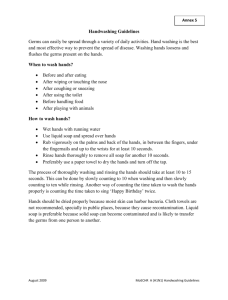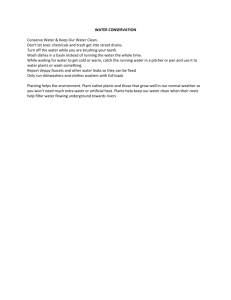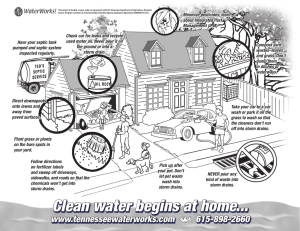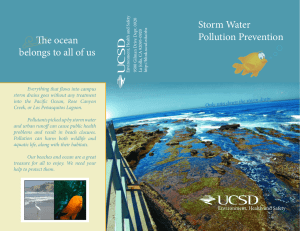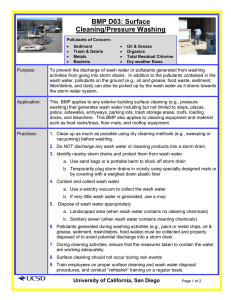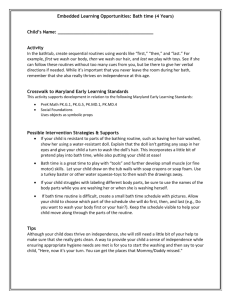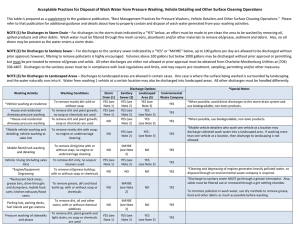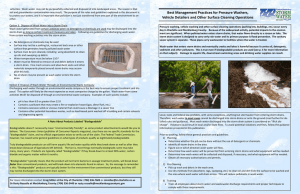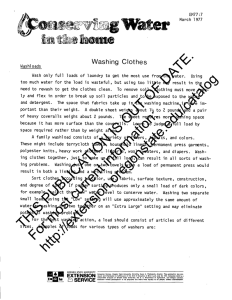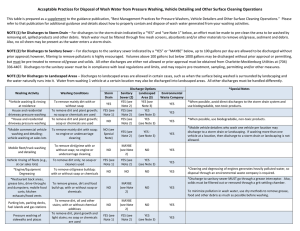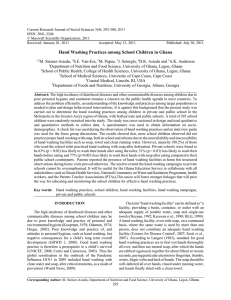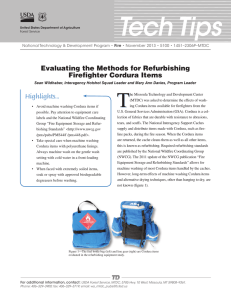IF YOU WASH YOUR CAR IN THE DRIVEWAY, IN THE LAKE.
advertisement
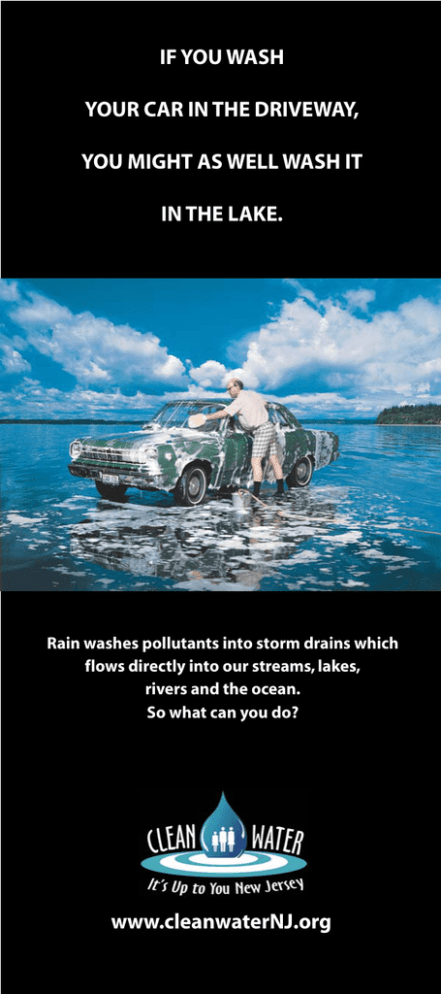
IF YOU WASH YOUR CAR IN THE DRIVEWAY, YOU MIGHT AS WELL WASH IT IN THE LAKE. Rain washes pollutants into storm drains which flows directly into our streams, lakes, rivers and the ocean. So what can you do? www.cleanwaterNJ.org WHAT’S THE PROBLEM WITH WASHING YOUR CAR? Washing your car on a paved surface can allow the soapy wash water and other pollutants, like oil and grease, to run off into a storm drain. Most soap contains phosphates and other chemicals that, in large amounts can contaminate your drinking water, as well as kill fish, wildlife and plants. The soap, together with the dirt and oil washed from your car, flows into nearby storm drains, which flows directly into lakes, rivers and the ocean. The phosphates from the soap can cause excess algae to grow, which can be harmful to the water quality. YOU CAN HELP! Take your car to a car washing facility, rather than washing it yourself. Commercial car washes treat and recycle the water. If you can’t get to a car washing facility, wash your car on an unpaved surface and use biodegradable soap. Organize a Car Wash Fundraiser for a local organization. Visit www.cleanwaterNJ.org to learn how. WHY SHOULD YOU CARE ABOUT CLEAN WATER? Stormwater pollution is one of the greatest threats to New Jersey’s clean water supply. Clean water provides access to safe drinking water, places for recreation, commercial opportunities, healthy wildlife habitats, and adds beauty to our landscape. Rain washes pollution from streets, parking lots, and lawns into storm drains, then directly to our streams, rivers, lakes and oceans. Did you know more than 60 percent of water pollution comes from things like motor oil, fertilizers, pet waste, and detergents? By sharing the responsibility and making small, easy changes in our daily lives, we can keep common pollutants out of stormwater. www.cleanwaterNJ.org Thanks to the Washington State Department of Ecology, King County, and the cities of Bellevue, Seattle and Tacoma.
